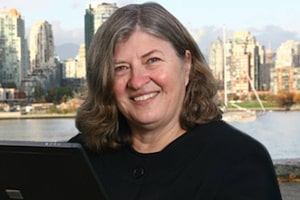A loophole in B.C.'s new campaign finance rules is giving independent candidates in the province’s civic elections a fundraising edge, allowing them to form unofficial groups without the constraints on donations they would face if they all were running for the same party.
The new rules ban union and corporate donations, and limit individual donations to any party to $1,200 in total, no matter how many candidates it has. But those without a party affiliation can each receive the maximum donation even if they are campaigning alongside other independent candidates with similar leanings.
“That is, quite frankly, a loophole,” said Dermod Travis, the executive director of Integrity BC, a group that monitors issues such as campaign spending.
The rule has candidates running under the banner of political parties saying they are at a disadvantage. Unlike many other Canadian municipalities, Vancouver and the surrounding cities do not have a ward system. Over the years, candidates for mayor and council have arranged themselves into parties, partly to help voters sort out a ballot with dozens of names.
The former BC Liberal government had been criticized as fostering limitless campaign fundraising and spending. The problem with the new rules adopted by their NDP successors has been raised in Vancouver and the nearby city of New Westminster.
Jonathan Coté, the mayor of New Westminster, is promoting a team of candidates running with him, even though they are not a party. “Team Coté,” with the mayor and six council candidates, can legally accept seven donations of $1,200 from the same donor.
But a new party in that city, New West Progressives, can get only $1,200 from a single donor for its four council candidates.
Mr. Coté’s group is a “de facto electoral organization,” said Daniel Fontaine, a candidate with the New West Progressives.
“I’ve watched the signs go up, I’ve watched all the co-ordination, he said. "For me, the spirit of the law has been broken. I think the province is going to have to fix this and be very restrictive about how much co-ordination there is.”
Whether like-minded, loosely affiliated candidates are benefiting from multiple donations to their cause is unclear: The new provincial rules, like the old, do not require candidates to disclose their donors until three months after the election.
The traditional two-party system that once dominated Vancouver politics has fallen apart. Mayor Gregor Robertson and many councillors from his Vision Vancouver party are not running again, and the ballot will be crammed with 158 names for 27 positions, some of them independent and others belonging to tiny and unknown parties.
The Vancouver and District Labour Council has endorsed independent mayoral candidate Kennedy Stewart, along with candidates from the four left-leaning parties – Vision, the Coalition of Progressive Electors, OneCity Vancouver and the Green Party. In effect, the endorsement creates a slate preferred by the labour group.
A donor wanting to support that list can make five $1,200 donations. However, a donor who wants to support the traditional right-wing party, the Non-Partisan Association, is restricted to a single $1,200 donation, even though the party has two dozen candidates.
“Right now, we can get $1,200 from somebody. But if a rich guy is willing to give $12,000 somewhere else, he can donate once to the party and then to other candidates,” said Mike Witherly, a campaign strategist with the NPA.
Mr. Stewart, a former NDP MP, said the new campaign financing rules mostly clamped down on big money donations and spending. He said a limit on how much one donor could give would close the loophole is helping independents.
“The bigger problem is that one donor could donate to every municipal candidate. Provincially, you’re limited to $2,200 over all. And that’s why pro-active disclosure is so important, so you know if somebody is going from candidate to candidate," he said.
In New Westminster, Mr. Coté has dismissed some of the concerns.
He said New Westminster has no large donors, so the idea that hundreds of people will be maxing out their contributions to his “team” – or the unaffiliated slate in any smaller town – is unlikely.
He said the idea wasn’t to get around the law. New Westminster has always operated through unofficial slates, he said, because voters seem to respond negatively to official parties.
“Political parties have not been successful here. People see those councils as being very dysfunctional and very divisive.”
He said that everyone is running individual campaigns, although he goes door-knocking with some of the people on his team. And he said that on election day, the whole team will work together and he does not see a problem with that.
“We certainly will be pulling our supporters from collective lists. We will be using joint lists to be able to pull our supporters that day.”
But Mr. Fontaine obtained a letter from the provincial privacy commissioner’s office noting the candidates and Mr. Coté are not allowed to share voter information unless each candidate gets permission from each voter on their database to do so.
 Frances Bula
Frances Bula